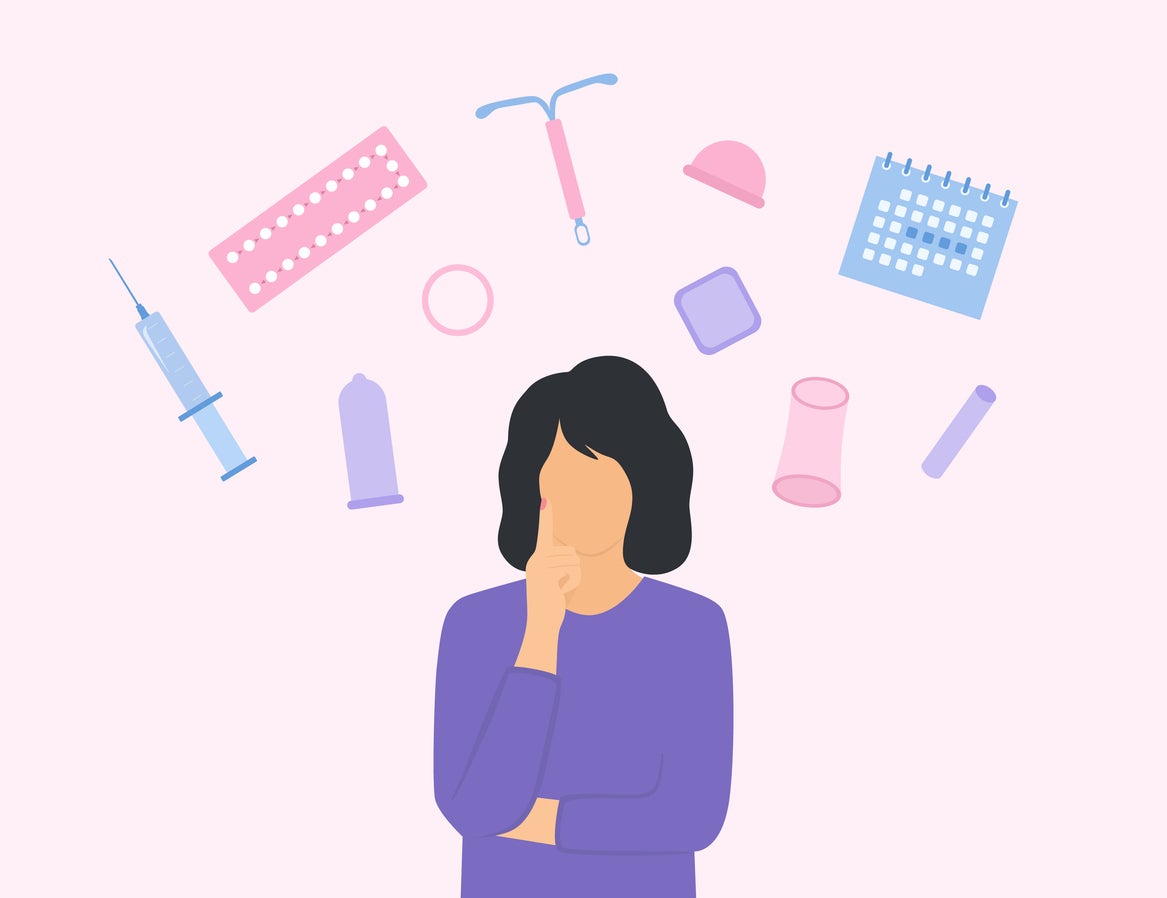The Independent's journalism is supported by our readers. When you purchase through links on our site, we may earn commission.
Why the shock news about birth control terrifies me and makes me angry
As new research reveals the sobering side effects of injectable contraceptives, Rosamund Hall – who used Depo-Provera throughout her twenties – asks why she wasn’t told of the risks... and wonders why it’s always women who are expected to go to war with their own bodies


The burden of womanhood is huge. Not only are we responsible for giving birth, we’re also predominantly responsible for not getting pregnant.
The average woman will menstruate approximately 480 times over 39 years – that’s 39 years of monthly cramps, bloating, huge hormonal fluctuations, mood swings... and if you have a break from bleeding, it’s likely because you’re pregnant, and despite what we are encouraged to believe, that’s not much fun, either.
Like many women, I suffer from crippling period pains. They were so bad in my late teens and early twenties that I desperately sought help from my doctor. And I duly thought I’d struck gold when the GP at my university campus surgery told me that I could have an injection which would stop my periods altogether, provide birth control – and I’d only need it every 90 days.
So, I did what many of my friends did in the early noughties: started having quarterly injections of medroxyprogesterone acetate (also known as Depo-Provera). I asked the doctor about its side effects and he said he wasn’t aware of any – but that it was “probably” safer than the combined pill, and sent me on my way.
But now we hear the shocking news that the injectable contraceptive has been linked to increased risk of brain tumours in women.
New research published in the British Medical Journal (BMJ) links the use of medroxyprogesterone acetate for more than a year to a higher risk of meningioma – a tumour of the membranes covering the brain and spinal cord. The researchers pointed out that in countries where the use of medroxyprogesterone acetate for birth control is frequent (there are 74 million users worldwide), the number of attributable meningiomas may be “potentially high” – which angers and worries me, in equal measure.
Why aren’t women like me told of the risks? Why are these kinds of side effects so often minimised, laughed off or ignored – and why do women constantly have to go to war with their own bodies to bear the brunt of responsibility for contraception?
Would men so glibly take what they were offered... and would birth control with potentially harmful ramifications be duly dished out to men in the first place?
I’m not sure. In fact, I think that medical misogyny is so entrenched that physical complaints from women are quashed and quibbled with, in the hope that we just stop talking about it.
This is how Depo-Provera affected my body: it made me feel terrible. Yes, my periods stopped – but in return I experienced weight gain and very low moods. Those were bad enough, let alone the other, much more sinister risks that I knew nothing about.
And while the variety of contraceptive methods has increased greatly since the introduction of the combined pill in the 1960s – including daily pills, implants, injection, IUDs and patches – the onus on birth control in relationships still sits squarely on the shoulders of women.
The limitations for male contraception seem far more cultural and psychological than scientific. For example: one example of a possible male contraception that works as an ejaculant suppressor hasn’t been actively developed because it might make men feel, well, less “manly”. In a research paper entitled “Attitudes towards the male contraceptive pill”, it was suggested a marketable pill remains “elusive” due to concerns around health implications for men and its long-term effects.
As the paper’s author pointed out: “That would be very unfair considering that the female pill was introduced to the market less than 10 years after its development, with refinement taking place alongside its use in practice during which side-effects and health problems became apparent. Does this mean that the image of the man as ‘Supermensch’ and the woman as second-class citizen is still very much alive in the 21st century?”
I’ll say. And I’d argue his latest research into medroxyprogesterone acetate proves just that.
Women are expected to accept whichever form of contraception is offered to us, regardless of the risks to our health. Thankfully, I stopped taking the Depo-Provera injection some years ago, but I have no idea what it’s done to my long-term wellbeing and I feel stupid in my naivety.
What stands out to me is the fact that healthcare is so fundamentally and transparently patriarchal. Men simply wouldn’t accept the same risks. The heteronormative narrative of sexual pleasure is still all about the man and his fulfilment – and to hell with the consequences.
I think it’s about time there was another sexual revolution – one where men shoulder some of their responsibility, for once... and share the risks that women have endured for a lifetime.
Join our commenting forum
Join thought-provoking conversations, follow other Independent readers and see their replies
Comments
Bookmark popover
Removed from bookmarks